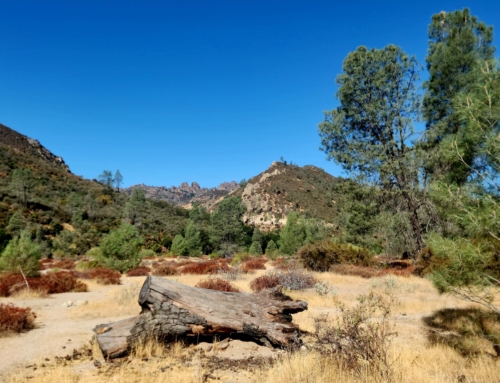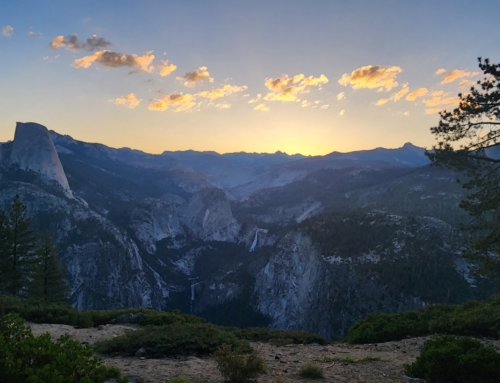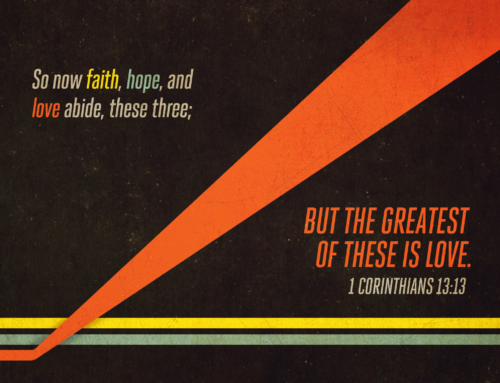What the Coronavirus Pandemic is Teaching Us
Pastor Chunhai Li
(Translated by Rev. Amos Lee)
For the Lord will not reject us forever. Even if He causes suffering, He will show compassion according to His abundant, faithful love. For He does not enjoy bringing affliction or suffering on mankind.
In these latter days, everyone is preoccupied with the coronavirus pandemic. I would describe it as a huge wave that has come ashore bringing destruction in its wake. Even so, different people cope with it in their own way, depending on their life experiences. According to some psychologists, those who have a relatively easy childhood growing up, will make light of the pain associated with the pandemic and live through it. Some become ostriches when dealing with the crisis by burying their heads in the sand, putting up defenses to protect themselves and letting it pass. Some others who had experienced difficult times while growing up would do all they can to control the crisis to prevent it from happening to them. And yet others, those who had been hurt before would put themselves in the situation and reflect upon the pain they had experienced and learn from it. In my own experience, my faith in Jesus Christ has made me a changed person. With His help, I was able to achieve a breakthrough in overcoming the difficulties associated with a family in destitute growing up and breaking free from the bonds of my health issues. These have helped me to grow in my faith in God. Lately, my thoughts are mostly centered on what the coronavirus pandemic is teaching me.
1. Breakthrough in Understanding. Socrates said. “To know, is to know that you know nothing.” The coronavirus gave the best minds in science a very difficult problem. They are grappling with one of the greatest challenges of our times – to understand how the coronavirus spreads, the speed it spreads and the scope of its spread. Even though we believe the pandemic will eventually come to an end, but in these tough times we struggle to find answers.
2. Neither “Right” nor “Left”. The Greek word for “sin” is “missing the mark.” “Missing the mark” is simply, missing the mark. No two ways about it. In facing the pandemic, the problem with the “left” is when they knowingly court danger with their adventuresome spirit and rash actions but make no contingencies for any corrective measures. The problem with the “right” is their tendency to surrender and become overly anxious and allow a spirit of fear to gobble them up. The teaching from the Bible is this: “And whenever you turn to the right or to the left, your ears will hear this command behind you: ‘This is the way. Walk in it.’ ” (Isaiah 30:21)
3. The Power of Adaptability. This does not mean being unprincipled and rudderless at the mercy of which way the wind blows. The smooth transition of worship from offline to online testifies to the creative adaptability of the structure of the church that enables the Gospel to be preached everywhere. The Lord sends out his disciples with these words: “Look, I’m sending you out like sheep among wolves. Therefore, be as shrewd as serpents and as harmless as doves. (Matthew 10:16) As far as practices go, we may have variations but we will always be as harmless as doves.
4. Appreciate What I Have. “Since it’s here, accept it with equanimity.” (Analects of Confucius) For the things that we cannot control, we pray. For the things we need to do, do it to the best of our ability. For those who are sheltered in place, let us use this as a memorable experience for life, thankful for the opportunity to be gathered together, united as a family.
5. Loving One Another. A Chinese saying tells it plainly: “Send coals in the deep of winter, not add flowers to a brocade!” It means that we are to provide timely and appropriate help to those in need. This pandemic is an opportune time for us to care for people in need in our community, living out Christ and witnessing for Him. Let us extend our helping hands in tangible ways, to pray, to care, to give of our material resources such as providing face masks to our medical professionals so that each heart will feel the warmth of the love of God.
6. The Speed of Infection. There’s a saying: Bad news travels faster than good news! Viruses destroy people. Christ builds people. The spread of the coronavirus is simply frightening. In a matter of a few months, its reach has been around the world. Taking a cue from the pandemic, it reminded us of the spread of the Gospel of our Lord Jesus Christ. Yet two thousand years later, there are still many unreached people groups all over the world. The church should reflect on deploying the best and newest technology to reach the world with the life changing Gospel of our Lord Jesus Christ.
7. We are humanity. The world we live in is a global village. Formerly, we lived as if the concerns of others were none of our business, caring just for ourselves. We are wrong. If there is a person in Africa who has a need, that should concern me as much here in North America. I will have to learn how to care and love people on an ever-expanding perimeter. In this pandemic, I will continue to pray and to reflect upon life. In the words of Xuefu Wang, the Director of a Psychology Clinic in Nanjing, in his article “Putting Aside our Mourning” said: “ In general, it could be said that a set-back in life could generate a breakthrough and a crisis is both a danger and an opportunity. We can make a choice as to what life could be for us. In life, there are gains and losses. It is our response to these that a meaningful life is created. Our everyday existence is a process of finding that meaning. There are the “good” and the “bad” in life. It is not just the “good” that defines that meaning for us. The “bad” can do as well, or even much more! Therefore, the pursuit of a meaningful life requires us to go deeper in finding out what that meaning is.”
Brothers and sisters, can you find the “good” in the “bad” pandemic?
(April 1. 2020 “From the Pastor”, a weekly column.)
Pastor Chunhai Li is the Pastor of the Immanuel Chinese Baptist Church, Little Rock, Arkansas.
Rev. Amos Lee is the Executive Director of the Chinese Baptist Fellowship of the US and Canada.
疫情到底教导我们什么?
李春海
因为主必不永远丢弃人。主虽使人忧愁,
最近大家关注最多的仍然是疫情的问题。 面对这洪水猛兽般的袭击,每个人会做出不同的反应。
1. 突破认知。“我自知我无知”(苏格拉底语)。
2. 不偏左右:希腊文中“罪”的原意是“箭没有射中靶心”,
3. 应变能力:这绝非毫无原则地见风使舵。
4. 珍惜拥有:“既来之,则安之”(《论语·季氏》)。
5. 彼此相爱:我们要雪中送炭,而非锦上添花。
6. 传播速度:俗语说:“好事不出门,坏事传千里”。病毒破坏人,
7. 人类共同体:人类是个地球村。从前“各人自扫门前雪,
李春海牧师是小石城以马内利华语浸信会的會牧。






